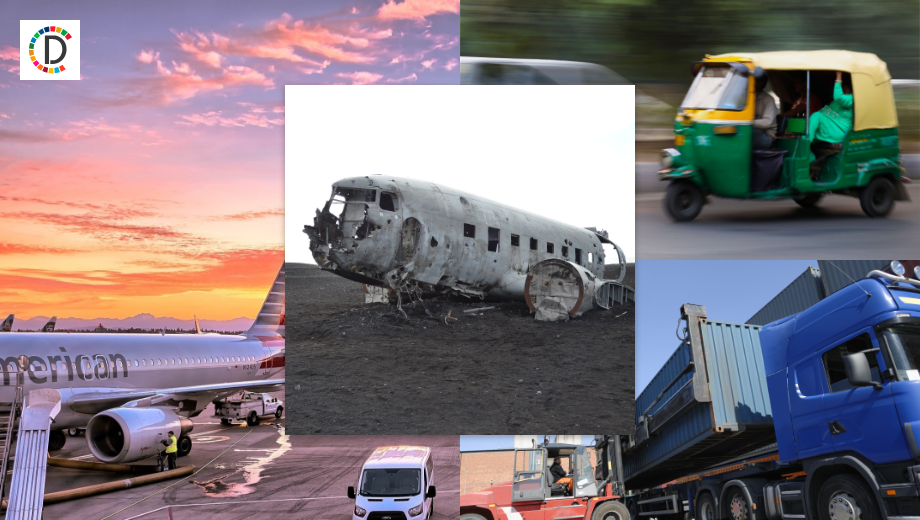Reimagined Tourism: How Rising Costs Inspire Sustainable Travel
By embracing a mindset of responsible tourism, we can create a more enriching and mutually beneficial travel experience for all.There are policy interventions that can help push that cultural shift along. By targeting more slow travellers visitors who will spend more time in various locations, seeking deeper engagement with their travel destinations Australia can maximise the economic and social benefits derived from tourism.

- Country:
- Australia
Brisbane Brisbane, Apr 29 (360info) Rising costs of living and airfares point to long-haul travel being affordable for fewer people. It also might re-shape the way we think about tourism.
Australians need to brace for a reality check. When it comes to international travel, we've had it too good for too long.
After years of cheap flights to all corners of the globe, market reality has hit and we're in for a bone-shaking landing.
That will mean a fundamental shift for the visitor economy. And the good news is, Australia stands to cash in.
Since the pandemic, airfares have re-adjusted and tightened. On average, airfare costs comprise approximately 30 to 35 per cent for jet fuel, 30 to 35 percent for labour and the remainder for aircraft leasing, purchases, administration, and other overheads. Geopolitical events, such as the conflict in Ukraine and tensions in the Middle East, have led to a spike in jet fuel prices. Simultaneously, an inflationary economy, fuelled by post-pandemic spending, is driving up costs. Global pilot shortages have resulted in substantial pay increases, further inflating expenses. Additionally, logistical disruptions from the pandemic have hindered aircraft manufacturing, reducing supply. Airlines are also willing to cash-in after significant losses during the pandemic years.
Consequently, we're witnessing an inflationary trend, with flying becoming increasingly costly amid reduced aircraft availability. Airlines are prioritising newer and more sustainable aircraft models, exacerbating supply-demand imbalances. These interconnected factors contribute to the escalating costs of air travel.
It appears that flying is transitioning into a luxury experience, particularly for long-haul journeys. Australia could strategically position itself in response. Rather than pursuing continuous growth in international visitor numbers, the focus may shift towards attracting longer-staying, higher-spending tourists who are willing to travel beyond the usual and iconic destinations. This strategy can maximise economic benefits.
Tourism often evokes a glamorous image of cultural exchange and exploration. However, this vision can only materialise through authentic experiences that allow for meaningful engagement. The era of ''fast tourism'', characterised by rushed itineraries and superficial encounters, is losing its appeal. There's a growing movement towards ''slow travel'', where travellers seek genuine connections and immersive experiences.
In essence, our approach shifts from relentless growth to sustainability. By embracing a mindset of responsible tourism, we can create a more enriching and mutually beneficial travel experience for all.
There are policy interventions that can help push that cultural shift along. Pulling levers like a cap on international flights out of main state capital cities, unless airlines fly via regional hubs like Cairns, Darwin and Broome could open up opportunities for regional tourism and development. Broome Airport, for instance, only sees Jetstar flights to Singapore twice a week, despite being the second-largest airport in Western Australia. If more business was funnelled through Broome, it would create the market to properly expand the airport's services — introducing customs and immigration services — and would give Broome the chance to serve as a gateway to the region, fostering growth in its tourism and economy.
The most direct way to push this influence is through Qantas, Australia's national carrier, over which the government holds regulatory power. Government bailouts during the pandemic underscored the role it can play in supporting airlines and demonstrating a gap that can be filled with a more nuanced approach to aviation policy.
An embrace of a locally minded travel culture also addresses another challenge facing the aviation industry — the climate crisis. The pandemic already nudged along a cultural shift towards cutting down unnecessary air travel as businesses became comfortable using platforms like Zoom, instead of flying in for face-to-face meetings. As companies become more conscious of their carbon footprint, tying sustainability goals into their responsibilities, business travel seems like an easy sector to curb. As far as tourism goes, Asian tourism especially holds immense potential for Australia and its economy. By targeting more ''slow travellers'' — visitors who will spend more time in various locations, seeking deeper engagement with their travel destinations — Australia can maximise the economic and social benefits derived from tourism. This approach projects as a more sustainable way to do tourism, built around encouraging longer stays and more spending for people who have flown to visit a far away destination. For Australian tourism powerbrokers, it means changing the mindset from constant growth to making the most of limited resources and focusing on a regenerative tourism model.
Tourism is often heralded with the glamorous view that it creates a better world because it fosters a better understanding of each other's cultures and ways of living. This can only be achieved if it's done authentically — if travellers take the time to engage with a destination. Fast tourism — the ''drop in, drop out'' model of passing through many locations rapidly — is losing its appeal. Australia can benefit. The silver lining of the cost-of-living crunch and airfare rise is that it presents a fantastic opportunity to open up the rest of the country, which is full of destinations many in Australia and the region haven't explored. By promoting slower travel and encouraging visitors to venture beyond the typical tourist hotspots, Australia can showcase its diversity, beauty and rich cultural heritage to the world. (360info.org) PY PY
(This story has not been edited by Devdiscourse staff and is auto-generated from a syndicated feed.)










